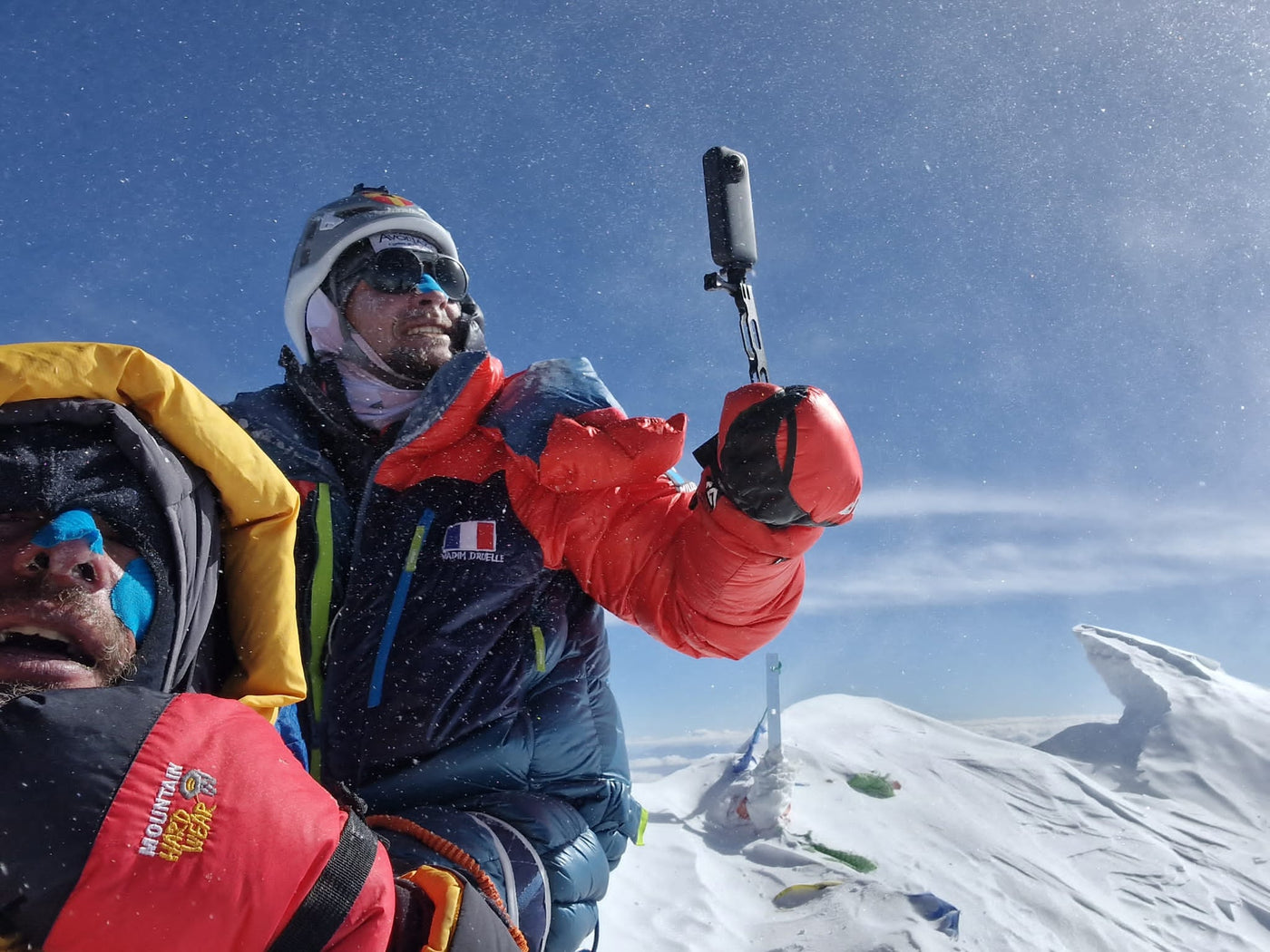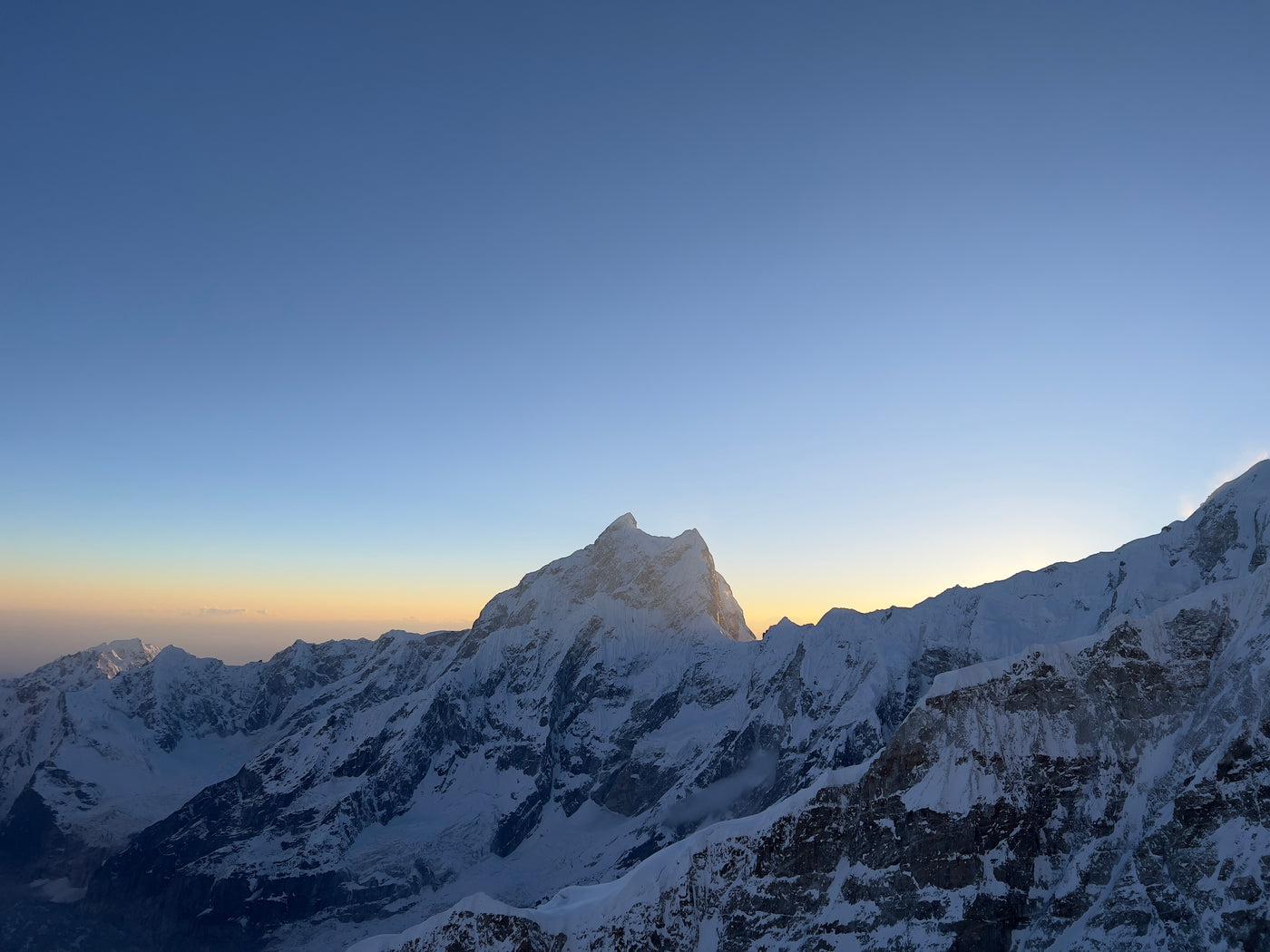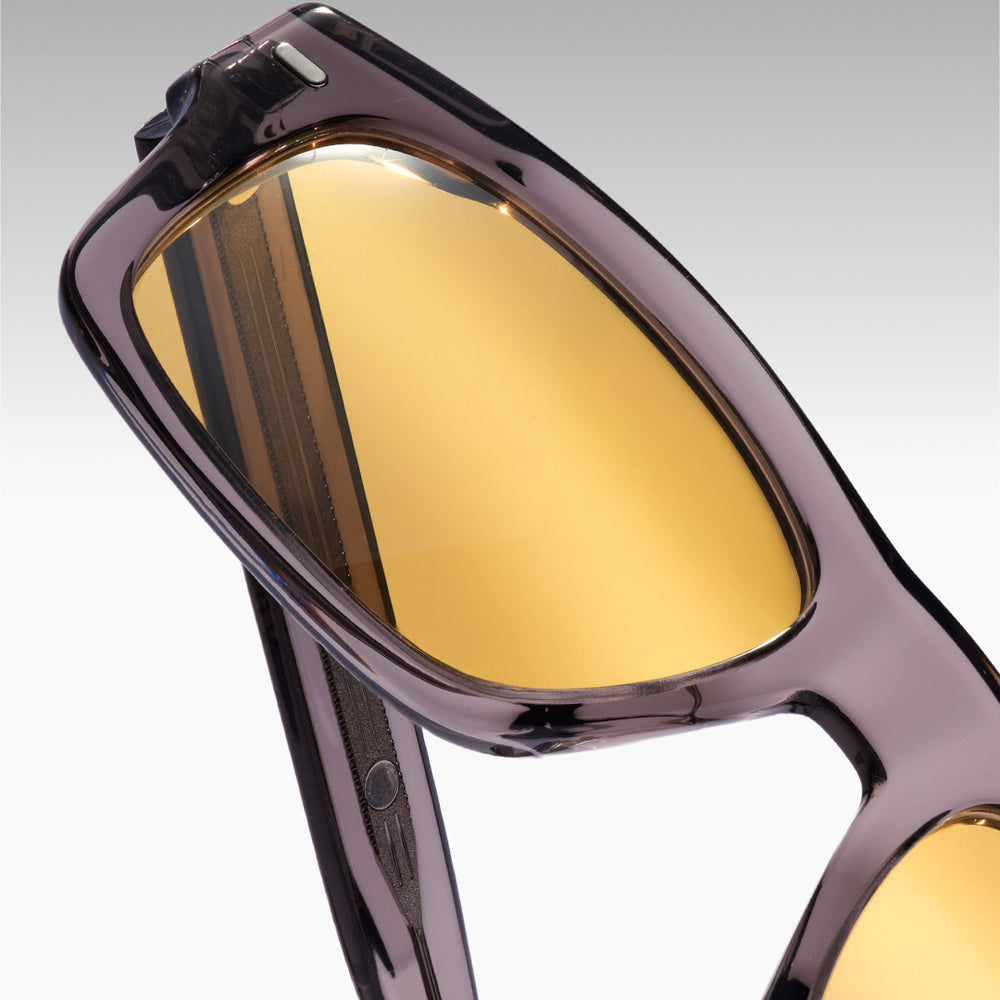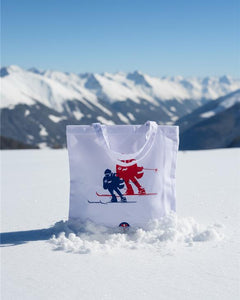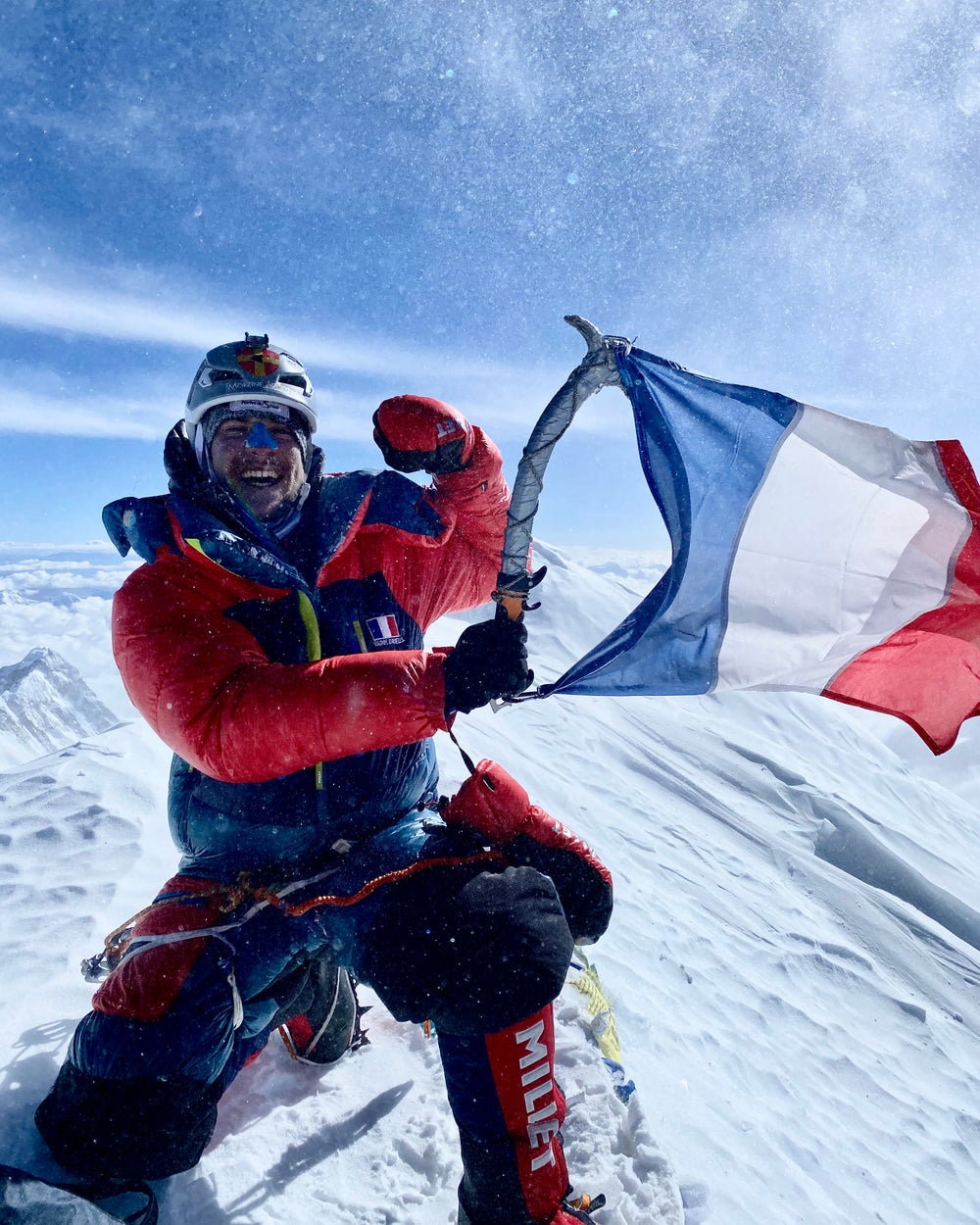
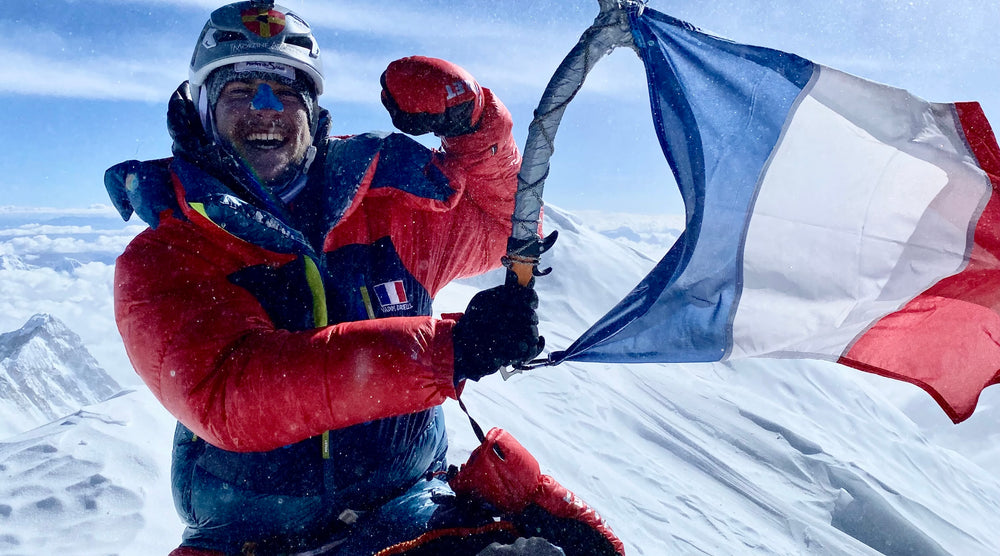
Can you tell us about your last expedition? What were the different stages of this one? I went to Eastern Nepal to attempt to climb Kangchenjunga in "one shot" without oxygen.
We had to take a small plane and then a 4x4 to a small village.
From there we hiked for seven days to get to the base camp at 5500m. We then acclimatized (getting your body for the altitude) for 3 weeks.
We attempted the summit on May 18 but unfortunately some of our group took the wrong path and we all turned around at 8200m. After a few days of thinking and waiting for a new weather window, we decided to try again. The others left two days before me. On May 25 I caught up to them and then overtook them before arriving at the top of Kangchenjunga at 8586m.
I climbed it as I had hoped: without oxygen, without Sherpa - solo, and in one shot. I am the first to have climbed the Kangch' in one shot.
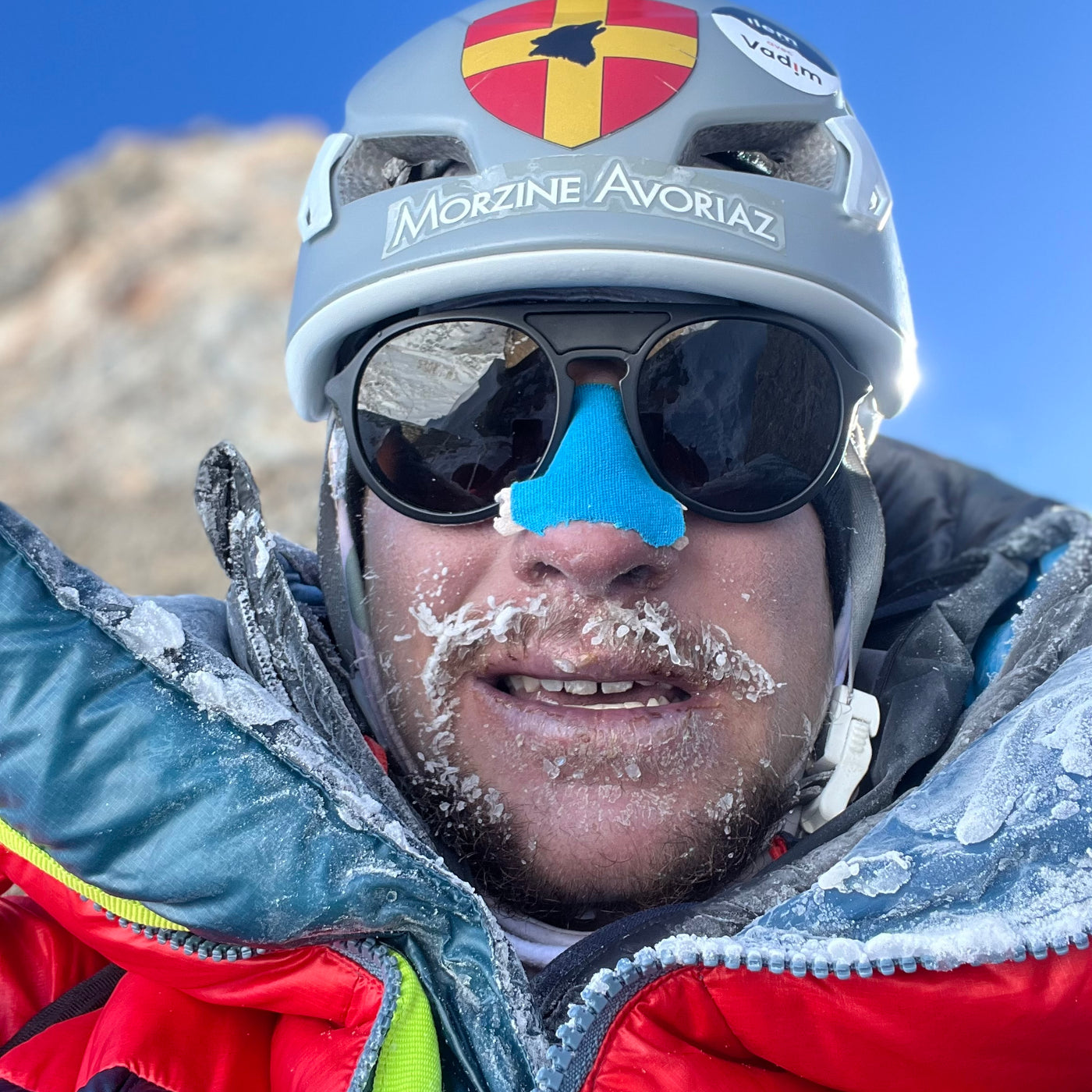
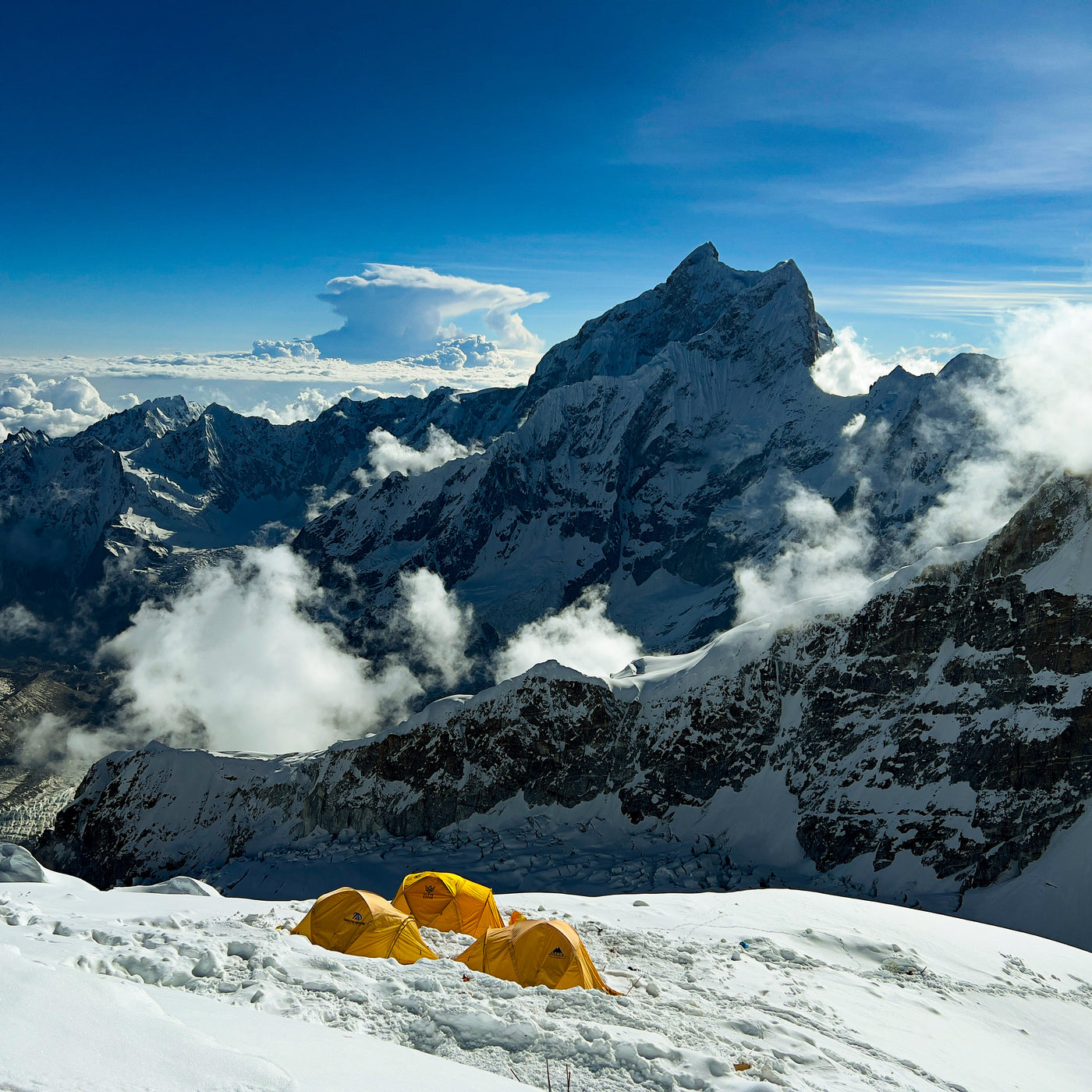
Why is Kangchenjunga special to you? After climbing my first 8000m peak, Manaslu, I immediately wanted to go to Kangchenjunga. It is sacred and renowned for its technical aspect, which fascinates me. In the meantime, I went on two expeditions over 8000m but the weather prevented me from summiting.
What was the hardest part of the whole project? The hardest part was setting the trail because I didn't want to wait behind people or Sherpa. Especially on summit day.
How would you define your practice of mountaineering? I would define it as old-school. I use my strengths and my motivations. I am quite a purist so I train to carry out my projects and I do them myself, without oxygen and without sherpa (without help). This is very important to me. In terms of environmentalism, for example, I avoid using my car and helicopters in Nepal when possible.
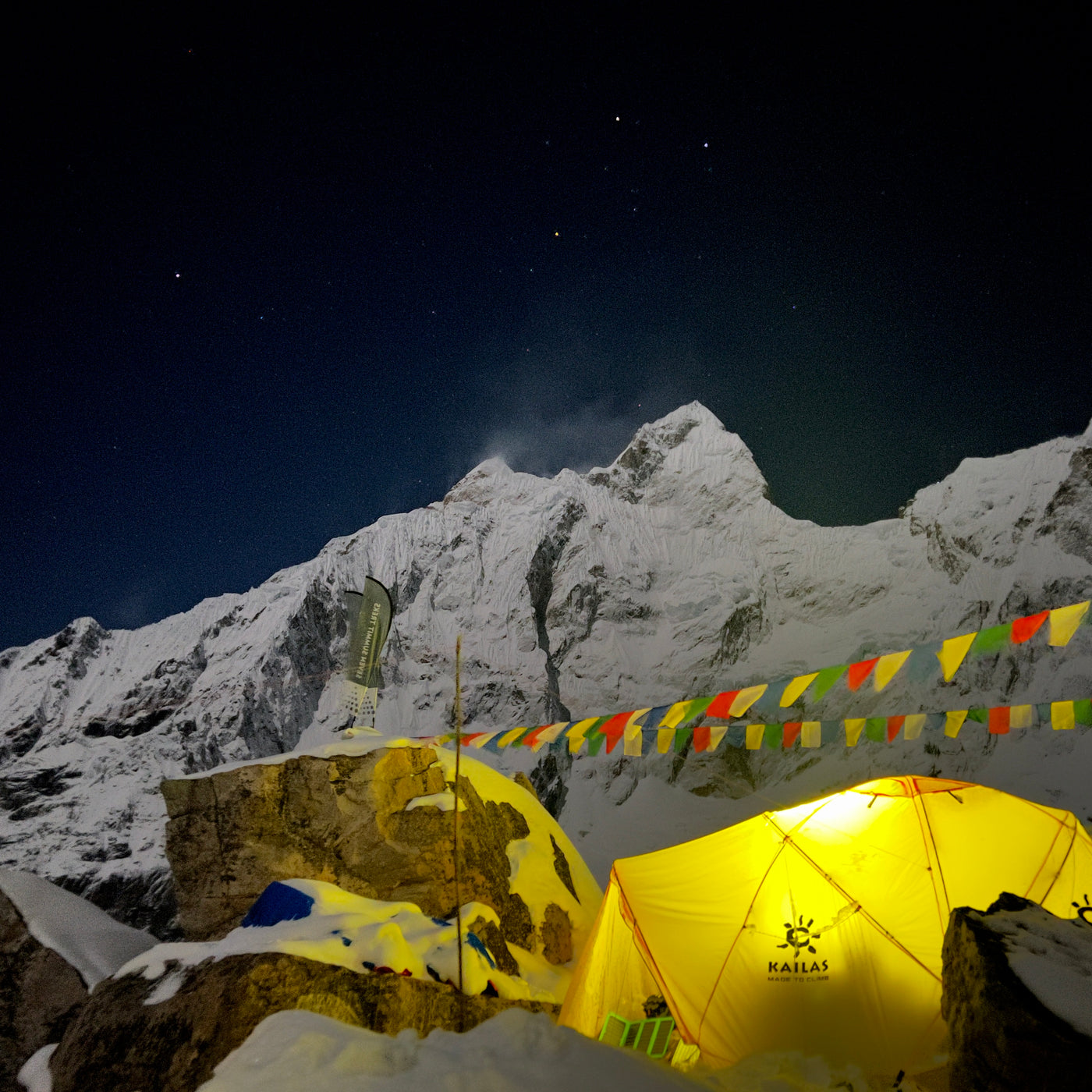
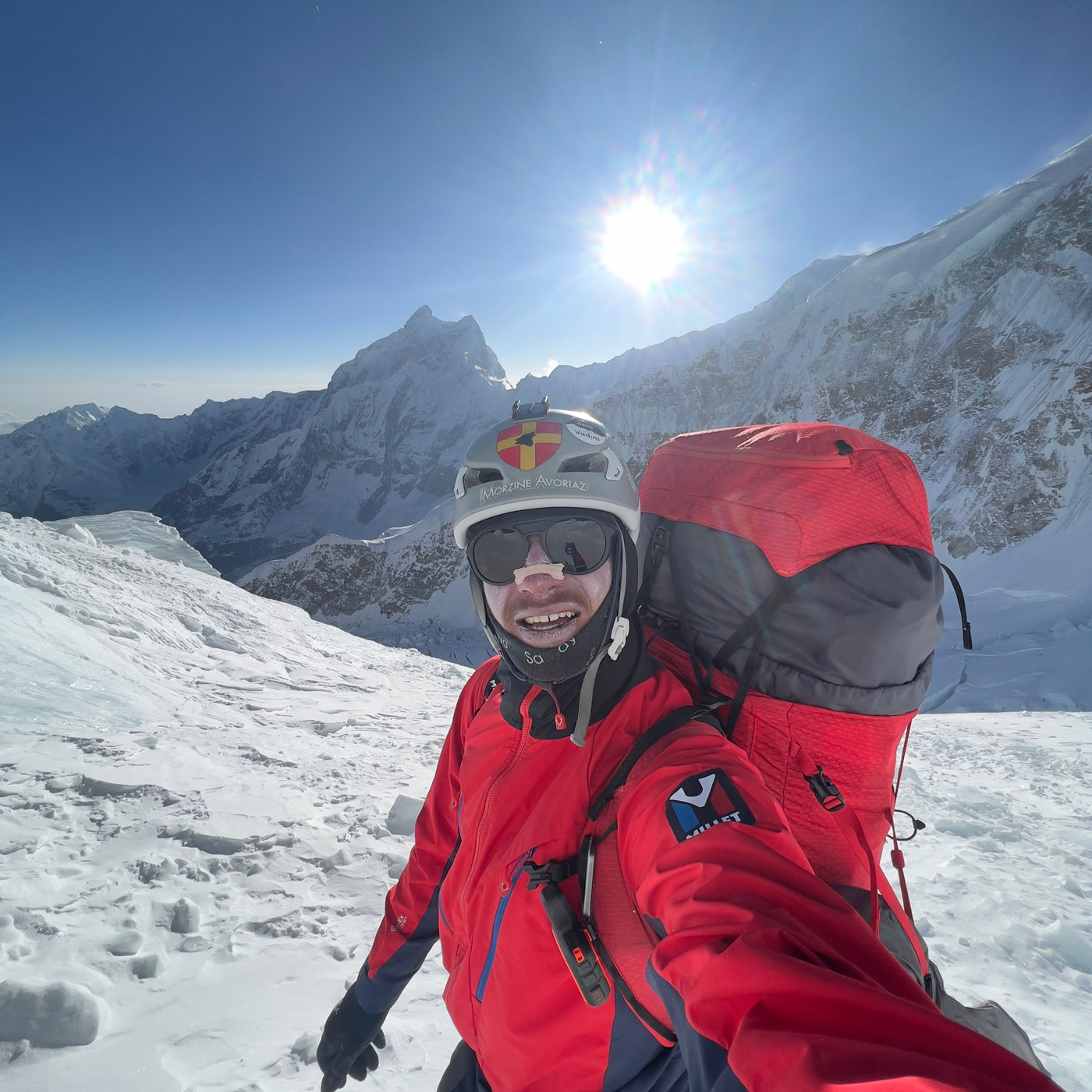
Can you tell us where your love for mountaineering comes from? This love comes from my parents. From a very young age they took me to the mountains and then to the high mountains. Little by little I really found the way I wanted to approach the mountains: fast, light, technical, at elevation, and therefore less exposed to danger.
Where did you get the energy and motivation to achieve this extraordinary performance? After making a first attempt at 8200m I was really tired and not necessarily motivated. I wanted to go home instead. But the weather was not too bad and I was able to rest for five days. After some thinking, a few at the camp wanted to try again, including me, because we were acclimated - which motivated us. Then once you're on the approach, it's all in your head that it's going to work out.
You have had a tragic experience that can be overwhelming. How did you manage that at the end of your expedition?The end of the expedition was quite difficult. A friend of mine lost too much time climbing and he died of exhaustion and altitude sickness.
The success of the ascent did not have the usual flavor. The worst part was that nobody wanted to help him. I wanted to go alone, but I couldn't do anything because I was too exhausted. For two months I shared everything with Luis because we had the same mindset and the same values. I was the last to have contact with him and his absence affected me a lot. It reminds that we are small in face of the mountain.
